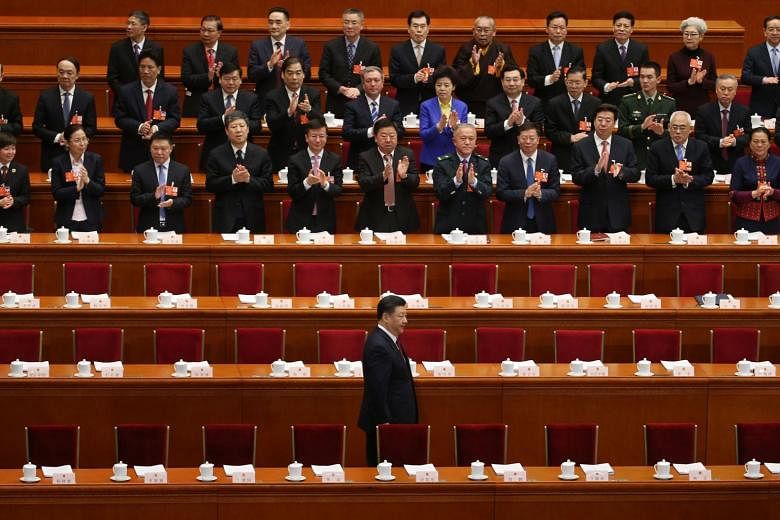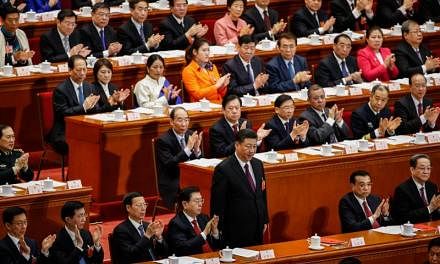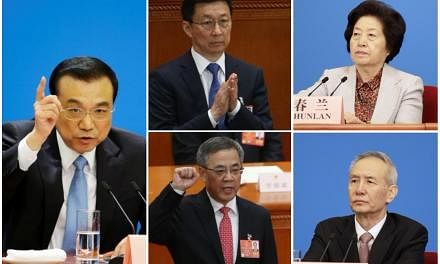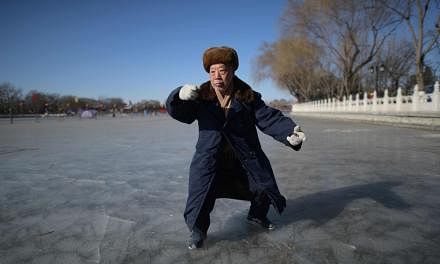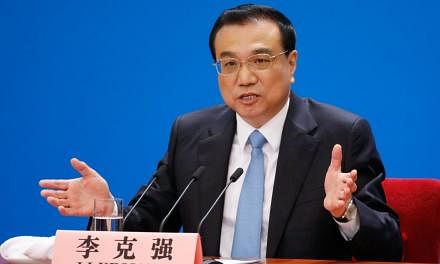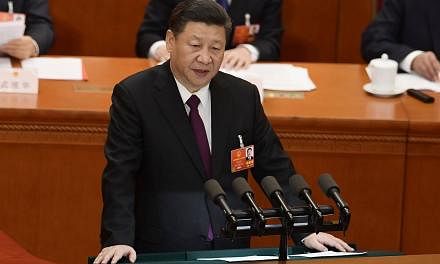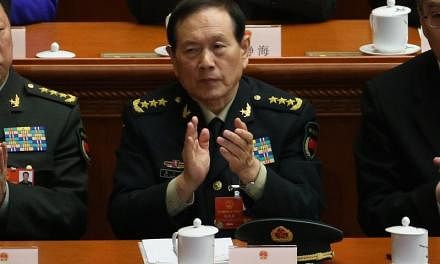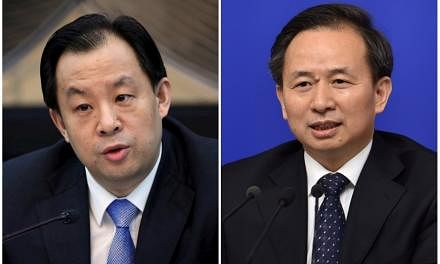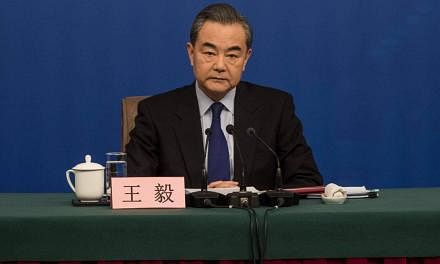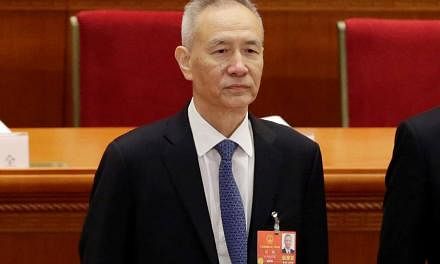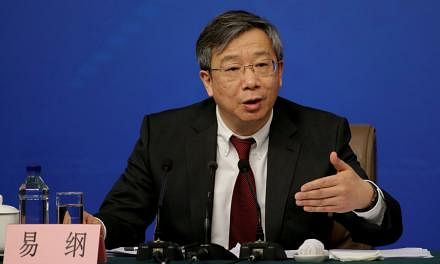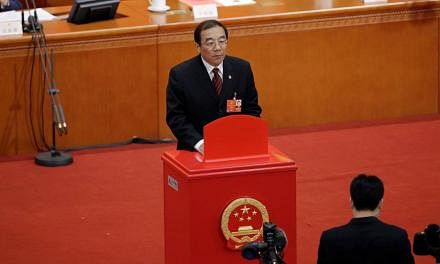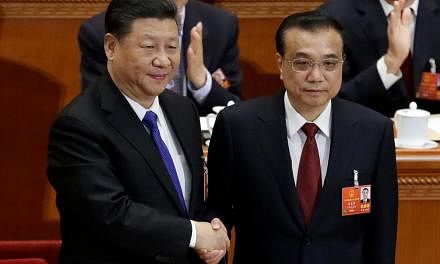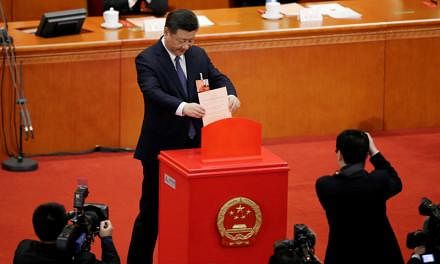BEIJING (AFP) - Public pressure, heated debate and a nail-biting vote: Don't expect any of that when Chinese legislators cast historic ballots on lifting presidential term limits on Sunday (March 11).
The rubber-stamp National People's Congress (NPC) has never voted against anything the Communist Party has imposed on the legislature in its half-century of existence.
President Xi Jinping is thus all but certain to secure a path toward ruling the world's second largest economy for life, but any legislator who may be secretly unhappy with the diktat has ways to discreetly express disapproval.
Experts explain to Agence France-Presse how the historic vote might go down.
HOW DOES THE SECRETIVE PROCESS UNFOLD?
The nearly 3,000 legislators of the National People's Congress include everyone from local party cadres to billionaires such as Tencent chief executive Pony Ma.
But they fill a mostly ceremonial role. The real decisions are made by the Communist Party months in advance.
The term limit proposal was kept secret until it was revealed in a state media report on Feb 25, a week before the legislature's opening session.
The party later disclosed that President Xi had presided over a meeting of the Politburo in September during which the leadership decided to revise the constitution.
The party said it then sought proposals and opinions, culminating in a decision in late January to introduce constitutional amendments at the NPC.
In addition to abolishing presidential term limits, the amendments include the rollout of a national anti-graft body, a larger role for the Communist Party and the addition of Mr Xi's eponymous political philosophy, "Xi Jinping Thought on Socialism with Chinese Characteristics for a New Era".
HOW DO THEY VOTE?
Delegates will convene for a plenary meeting on Sunday afternoon. Ballots will be distributed and each delegate will mark one of the following options: for, against or abstain.
They will then slip their votes in ballot boxes, and counting will begin. The proposal will be approved if at least two-thirds of the delegates vote in favour of the draft amendment.
"The convention is to vote on the amendment as a whole so there won't be a separate vote on the term limit," said Mr Wei Changhao, editor of the National People's Congress Observer.
PROTEST VOTES?
When Mr Xi was elected president in 2013, he received 2,952 votes, with one against and three abstentions - a 99.86 per cent approval rating.
Since the NPC's founding in 1954, it has never voted down a proposal. But analysts say delegates could abstain, since the voting is supposed to be anonymous - at least officially.
"A significant number of 'no' votes or even abstentions would be a gasp-worthy event. Failure to reach the needed two-thirds majority would be faint-worthy," said law professor Margaret Lewis at Seton Hall University in New York.
Legislators have cast negative ballots in the past.
In 2013, some 500 voted against the budget. During Mr Jiang Zemin's presidency, around a third had voted against a report on the prosecutor's office, according to China politics specialist Jean-Pierre Cabestan at Hong Kong Baptist University.
But Professor Ling Li, fellow at the Institute for Human Sciences in Vienna, said there is no suspense. "If we started to doubt it, that would mean the regime had changed," she said.
